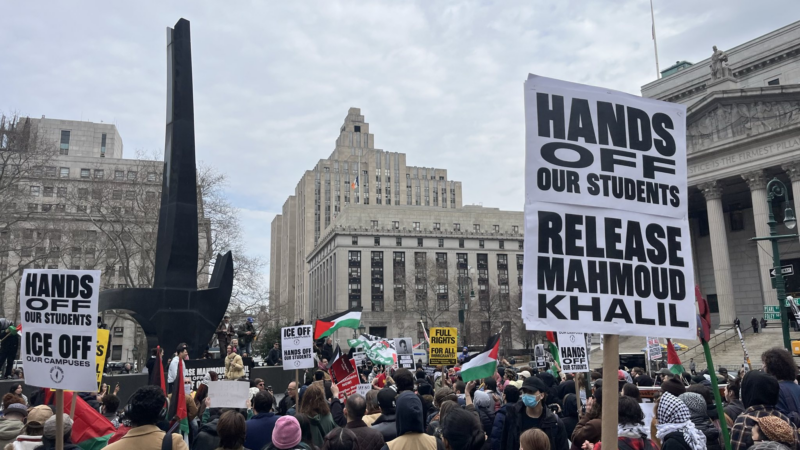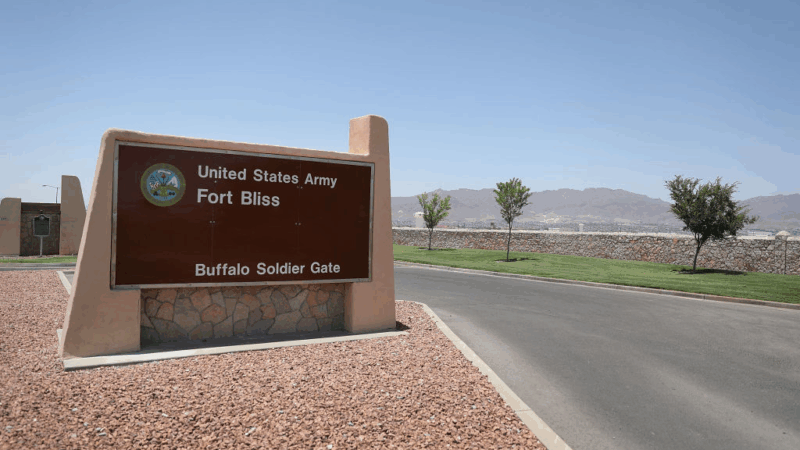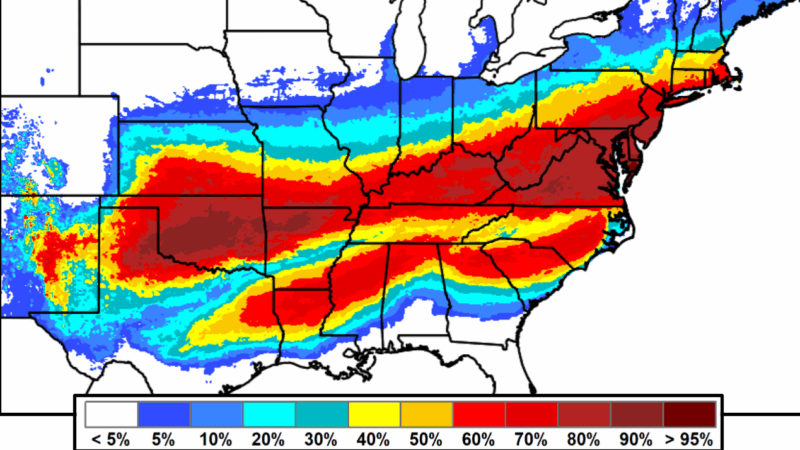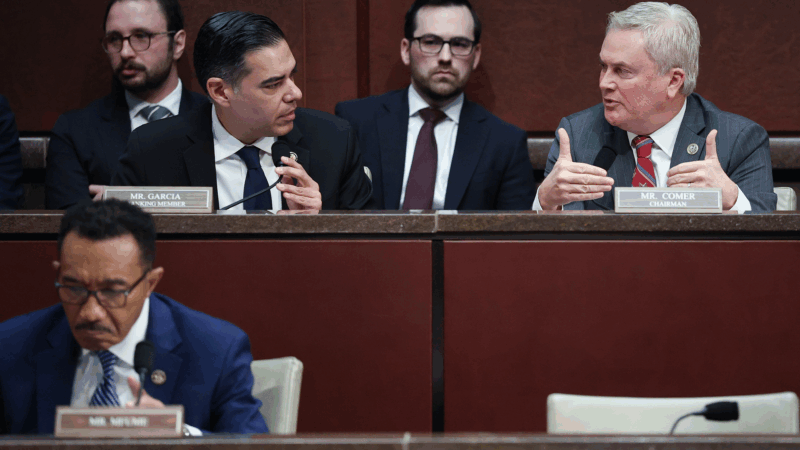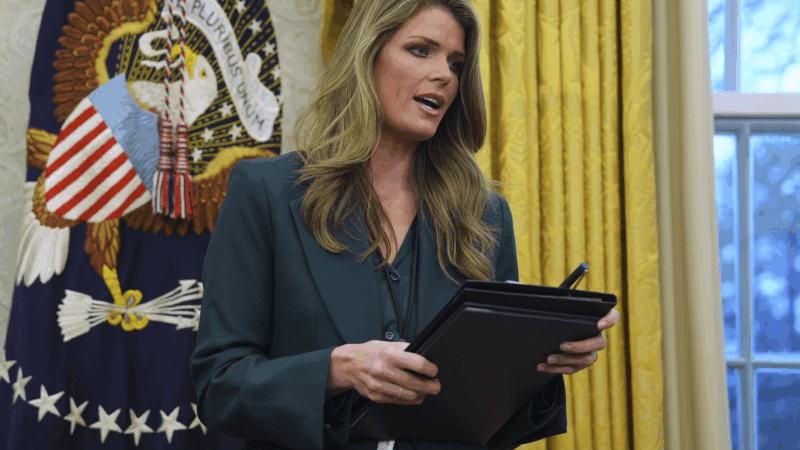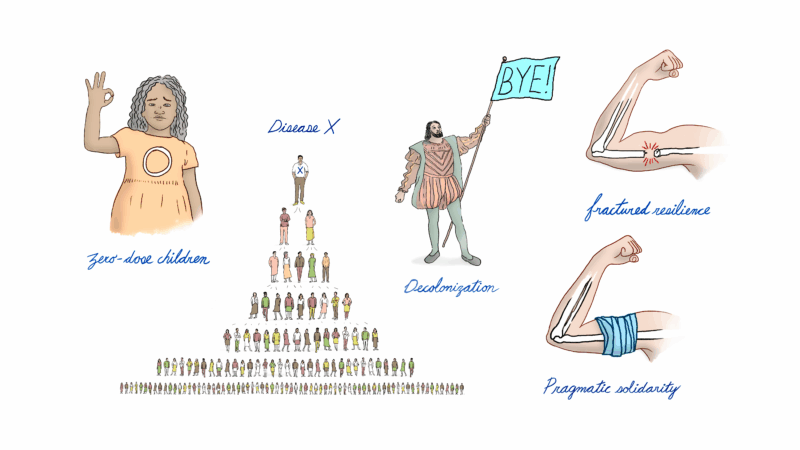Federal judge hears challenge to Mahmoud Khalil’s detention
A federal judge in New York is now considering whether a pro-Palestinian activist and lawful permanent resident sent to an immigration detention center in Louisiana must be returned to New York, the place where he was initially arrested.
Mahmoud Khalil’s arrest and detention over the weekend has generated widespread opposition and sparked a debate over free speech. Khalil participated in student protests last year at Columbia University and was one of the negotiators on behalf of students during on-campus protests pushing for the university to divest from Israel over the war with Hamas.
U.S. District Judge Jesse M. Furman will decide whether Immigration and Customs Enforcement’s decision to transfer Khalil to a federal detention facility in Louisiana violated the law, given that his attorney had filed a challenge to his arrest in New York, where he was initially detained. Earlier this week, Furman blocked Khalil’s deportation until the court ruled on the challenge to his detention.
Baher Azmy, the legal director of the Center for Constitutional Rights, and one of Khalil’s attorneys, told reporters at a press conference following a hearing earlier today that Khalil’s detention “has nothing to do with security, it is only about repression.”
“The United States government has taken the position that it can arrest, detain, and seek to deport a lawful permanent resident exclusively because of his peaceful, constitutionally protected activism,” Azmy said. “In this case, in support of Palestinian human rights and an end to genocide in Gaza.”
Judge Furman gave the U.S. government until 11:59 p.m. Wednesday to respond to Khalil’s attorney’s petition to bring Khalil back to New York. The government said it’ll likely ask the court to move Khalil’s case to Louisiana or New Jersey, the two states where he’d been held after a brief detention in New York.
Khalil is a Syrian national of Palestinian descent and has a green card — making him a lawful permanent resident. He was arrested by Immigration and Customs Enforcement on March 8th in the lobby of his university-owned apartment in front of his wife, an U.S. citizen who is eight-months pregnant.
Judge Furman ruled that Khalil must be granted a private call of at least one hour with his attorneys.
President Trump said on Monday that Khalil’s arrest is “the first arrest of many to come” of students “who have engaged in pro-terrorist, anti-Semitic, anti-American activity.”
In January, President Trump issued executive actions directing his administration to go after people who engage in “anti-Semitic harassment and violence.”
Speaking to reporters on his flight from Saudi Arabia to Canada Wednesday, Secretary of State Marco Rubio said Khalil’s arrest was “not about free speech.”
“No one has a right to a student visa. No one has a right to a green card, by the way,” Rubio said.
“But I think being a supporter of Hamas and coming into our universities and turning them upside down and being complicit in what are clearly crimes of vandalization, complicit in shutting down learning institutions … If you told us that’s what you intended to do when you came to America, we would have never let you in,” Rubio said. “And if you do it once you get in, we’re going to revoke it and kick you out.”
Khalil’s attorneys insist he is not a supporter of Hamas.
Earlier this week, Amy Greer, one of Khalil’s attorneys, told NPR that ICE agents told Khalil his student visa had been cancelled, despite the fact that he’s not on a visa. He was later told that his permanent residency had also been revoked.
In a statement read by one of Khalil’s attorneys Wednesday, Khalil’s wife accused the U.S. government of kidnapping her husband from their home “because he stood for the rights and lives of his people.”
The wife’s name was not provided by the attorney.
“I demand his immediate release and return to our family,” Khalil’s wife said.
Autopsy finds Cuban immigrant in ICE custody died of homicide due to asphyxia
A Cuban migrant held in solitary confinement at an immigration detention facility in Texas died after guards held him down, according to an autopsy report released Wednesday that ruled the death a homicide.
Confused by all the notices issued for intense winter weather? Here’s your guide
The National Weather Service issues a litany of notices before and during inclement weather events. They can be important signals on how to respond.
A massive winter storm will hit large parts of the U.S. through the weekend
A large storm system is expected to hit this weekend, with snow and ice from Texas to the Carolinas and up the Eastern seaboard. The winter system could bring more than a foot of snow.
House Oversight panel votes to hold Bill and Hillary Clinton in contempt of Congress
Republicans on the committee have been seeking to question the Clintons as part of a probe into the government's handling of the Jeffrey Epstein case. The vote sends the matter to the full House.
Lindsey Halligan, Trump’s former personal attorney, exits Virginia prosecutor’s office
The move comes after a federal judge wrote in court document that the "charade of Ms. Halligan masquerading as the United States Attorney … must come to an end."
Global buzzwords that will be buzzing in your ear in 2026
Will it be a year of "fractured resilience"? Or "pragmatic empathy"? Will "MOUs" be the next global health strategy? Are we in a new age of "decolonization" — or of "localization"?

